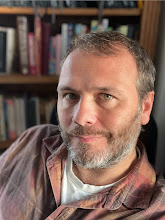 |
| Photo credit: Mary Lee Agnew |
A fox looked at his shadow at sunrise and said, "I will have a camel for lunch today." And all morning he went about looking for camels. But at noon he saw his shadow again - and he said, "A mouse will do."
A writer looked at his word count at sunrise...
Still, if you also had a mouse day today, take heart. Here's Ralph Waldo Emerson to cheer us up:
We do not know whether we are busy or idle. In times when we thought ourselves indolent, we have afterwards discovered, that much was accomplished, and much was begun in us. All our days are so unprofitable while they pass, that 'tis wonderful where or when we ever got anything of this which we call wisdom, poetry, virtue. We never got it on any dated calendar day. Some heavenly days must have been intercalated somewhere.
Thanks, Ralph! And nice use of 'intercalated'.
-------------------------------------------------------------------------------------
I'm on tour from September to November! Venues and ticket links here.






